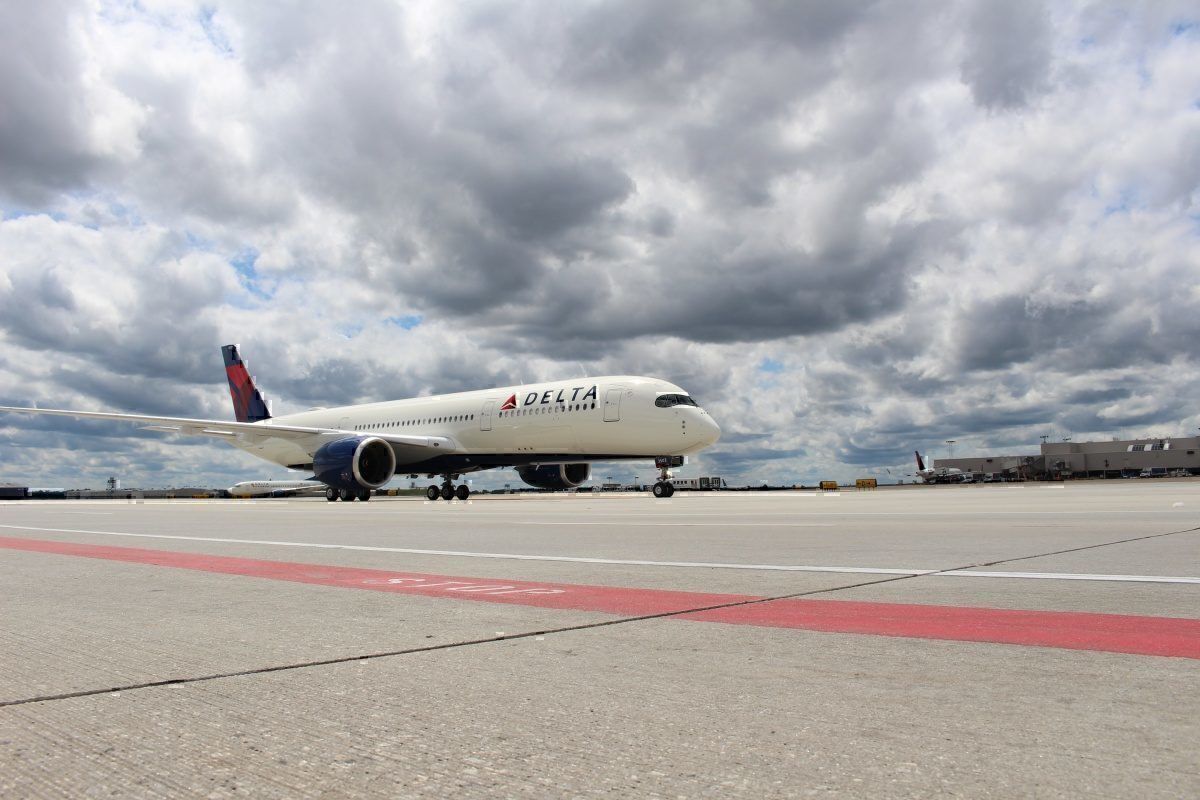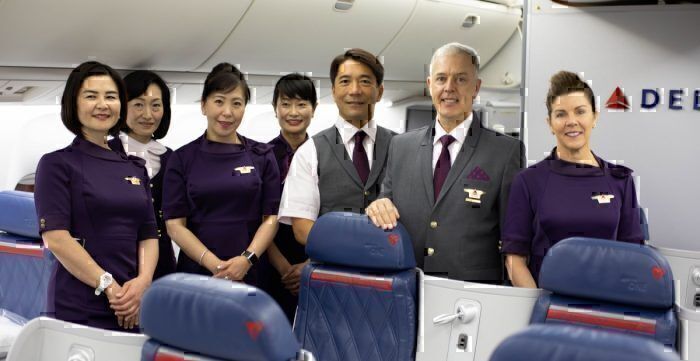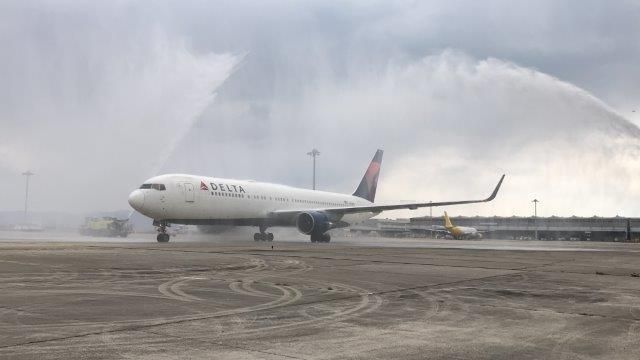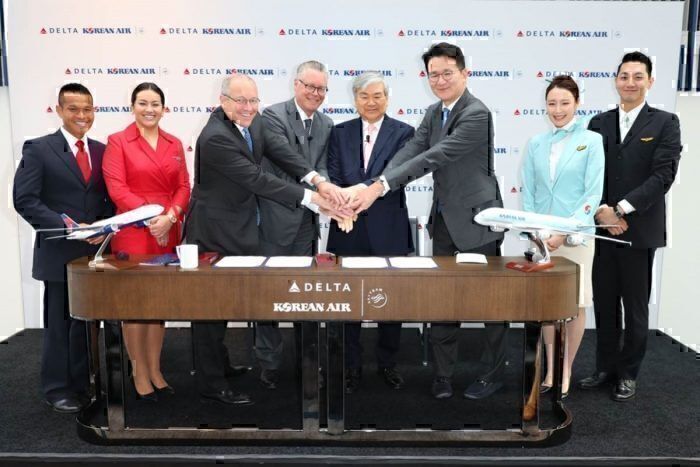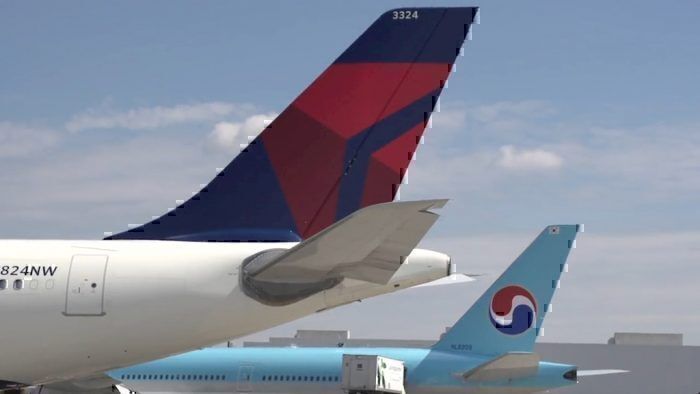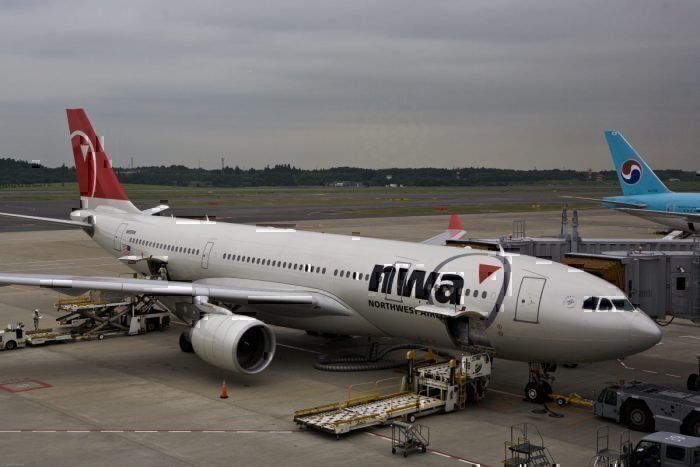In a new development, Delta Air Lines is closing its flight crew base at Tokyo. This comes as Delta moves to completely strip its presence at Tokyo-Narita in favor of Haneda Airport. In addition to ending the crew base, Delta will also suspend some routes out of Tokyo.
The reports
View from the Wing reports that, due to the de-hubbing of Narita, Delta will be laying off all of their Asia-based flight attendants. Instead, the crew will have options to transfer to the reservations, or Customer Engagement Center, in Japan.
Rene's Points goes further to say that Delta will be replacing those flight attendants with United States-based crewmembers who speak Japanese. Delta did confirm the reports.
Delta offered the following statement to Simple Flying:
With Delta’s operations ceasing in NRT, it will be necessary to close the Tokyo flight attendant base. We remain committed to supporting our people through this difficult transition. We will offer the option to transfer to customer service roles in other areas as well as an option to accept a voluntary separation program.
Route cuts
Delta is suspending service to Singapore from Tokyo. Also, Routes Online reports that Manila will also be axed from Delta's network. Previously, these routes were operated as connecting services. Passengers could fly to Singapore or the Philippines after connecting in Narita.
Due to the new slot allocations at Haneda, Delta will instead be pulling out of Narita entirely. Since the carrier did not receive any new slots to maintain those services, it will instead be ending the routes.
Why is Delta doing this?
Delta has been altering service to Asia, some of which can be attributed to Delta's joint venture with Korean Air. Instead of serving points in Asia directly, Delta funnels passengers through Korean's hub in Seoul. This strategy led to the US carrier axing Hong Kong from its route network last year.
Unfortunately for passengers, this means fewer options on Delta metal. And, for Delta's Asia-based cabin crew, this leaves the options of either taking a major career demotion or seeking a new opportunity with another carrier.
Oh, Delta...
Delta Air Lines is often referred to as one of the best legacy carriers in the United States. Unfortunately, this does not seem to extend to its route network. On one hand, American Airlines has made international expansion a major priority with new flights to destinations in Poland and Croatia. Not to be left out, United has also focused on major international flights to markets like India, Australia and South Africa.
And then there's Delta. Delta has instead preferred to facilitate connections rather than launching its own international services. For passengers, this usually means additional connections and transfers to partner airlines. In Asia, Delta has ceded ground after merging with Northwest Airlines. There was a time, once, when Northwest was one of the most well-known American carriers flying to Asia. Now, Delta seems to be retreating from Asian routes.
Furthermore, the Haneda route allocations were opened up to foster competition and grow passenger opportunities from North America to Asia. Instead, Delta seems focused on beefing up its operations at Haneda while leaving fewer connecting opportunities for its passengers. While United and American are adding service to Japan, Delta instead is cutting overall service to Japan and, instead, moving existing routes from Narita to Haneda.
Delta has some excellent onboard products. If only these flew to more destinations across the globe.
Overall
It seems that this reshuffle will result in the closure of Delta's base in Tokyo. Unfortunately, this means a number of people will be out of a job or face a demotion of sorts. For passengers, this means fewer destinations they can fly to on Delta metal. From an operations standpoint, with fewer destinations out of Tokyo, Delta does not need a crew base. Nevertheless, this marks the end of an era in Tokyo that was once dominated by Northwest Airlines.
What do you make of these changes? Let us know in the comments!

